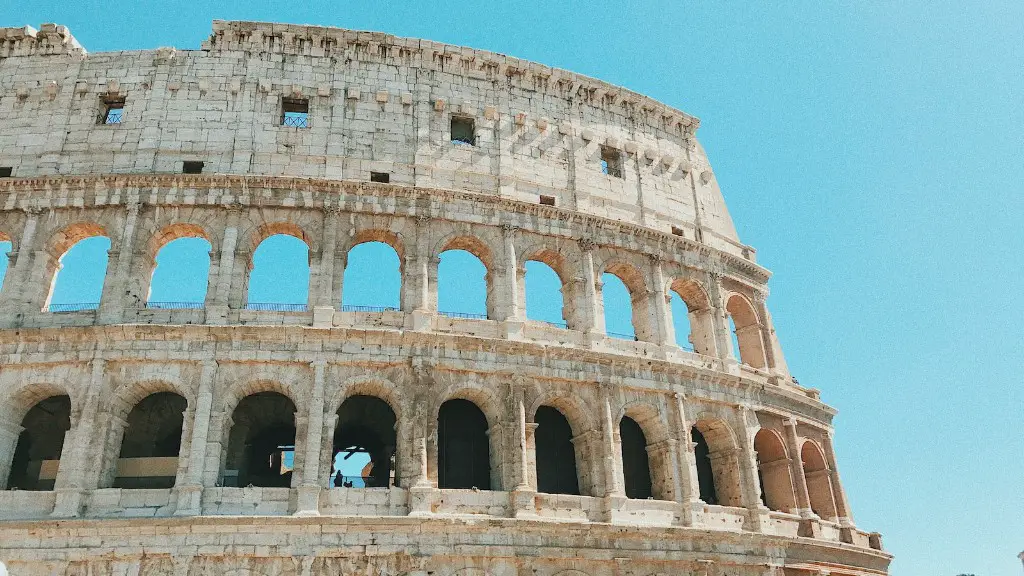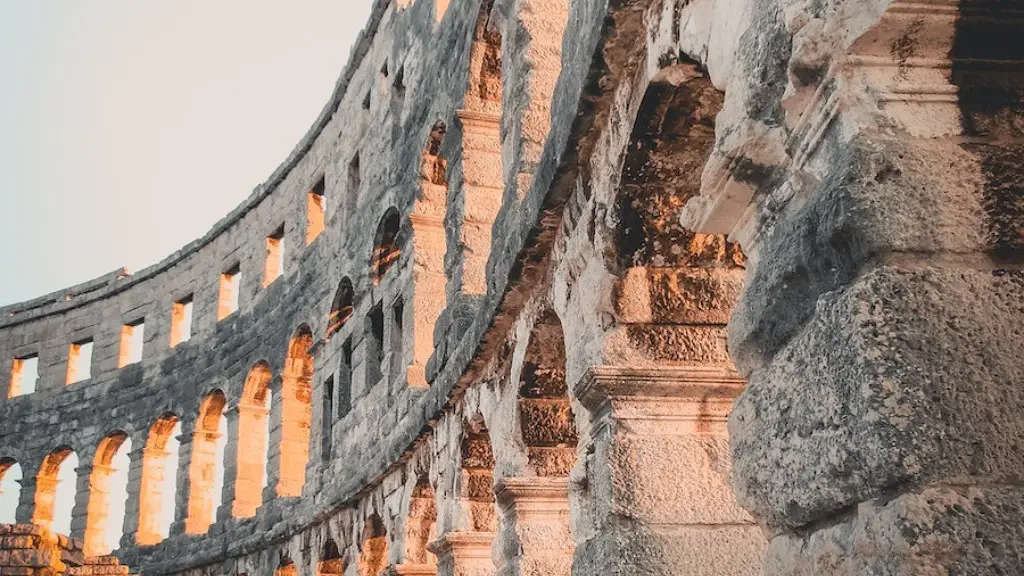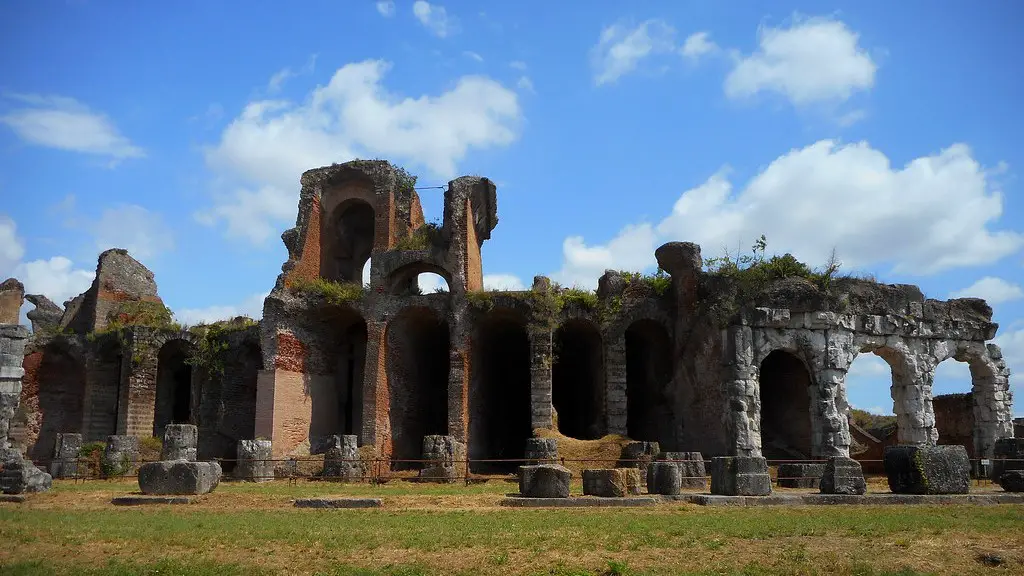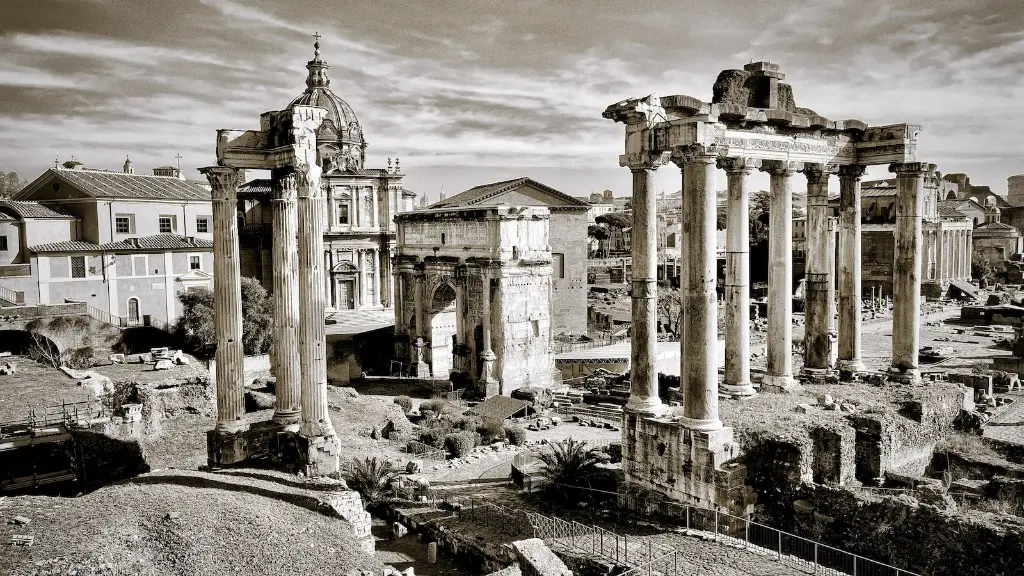Romans’ Daily Routine
Rome, once known as a small city-state in Italy, became one of the most powerful and influential empires in history. Much of the success of this ancient civilization can be attributed to their highly structured routine. This daily regimen was the foundation of Roman society and it influenced how the people led their lives. So what was the ancient Roman daily family routine like?
It’s important to mention that ancient Roman society was very hierarchical and class-based. A family’s wealth, social standing and occupation affected their daily routines. Generally, people in Rome would rise relatively early, usually at dusk. This helped families avoid the midday heat and humidity. Breakfast usually consisted of wheat porridge with milk, honey and salt. After breakfast, the day began with work or leisure activities. This regime was based on the concept of earthly and spiritual duty. Family members would be expected to engage in either work or leisure activities.
Work for the day usually began in the morning and lasted until noon. After midday, the majority of families would share a meal together. In Roman families, certain members were appointed to be responsible for the household chores. Often, the eldest daughter in the family was appointed the task of managing the house including, the cooking, cleaning and washing. Afternoon was considered the time for relaxation and leisure activities.
Many ancient Romans spent their leisure time engaging in various activities that were considered hobbies. Education was an important aspect of leisure and many wealthy Roman families valued philosophical and sporting activities. Participating in philosophical debates, cultural events as well as social gatherings were popular pastimes. Playing board games was also very common among families and attending the theatre or chariot races were socially acceptable activities.
Throughout the day, there were moments of spiritual devotion. At dawn and dusk, families offered prayers to their gods and goddesses. Ancient Romans were deeply spiritual and deeply devoted to their gods. Prayers were offered to deities such as Jupiter, Mars, Apollo, and Venus for guidance and protection. Spiritual dedication was seen as part of daily life.
The day ended with the family coming together one last time for dinner. The Romans were known for their lavish meals and dinners were the most elaborate meal of the day. People would come together, talk, joke and tell stories. This was an important part of their routine as it helped foster a sense of community and belonging. After dinner, many of the family members would retire early to go to sleep as the next day would bring with it a similar routine.
Roman’s Focus on Education
Romans valued education as a critical part of their daily routine. Wealthy Roman families would often hire tutors for the children so that they could receive the best education possible. Private schools and boarding schools were also popular among the wealthy and upper class. Generally, the sons from such families would focus on studying law, literature, philosophy, and rhetoric towards becoming successful statesmen or ambassadors. While the daughters were expected to focus on learning the skills necessary to fulfil their future roles as wives, mothers and housekeepers.
For more common families, most of the educational activities happened within the family. Fathers, who were typically the heads of the households, would often take personal responsibility for teaching their children. They paid particular attention to ensure that their children were educated on the importance of their families’ status and the values of ancient Rome. Home education was seen as more of an experience rather than a chore and was viewed as an opportunity to discuss complex matters like politics and philosophy.
Apart from traditional education, children learnt useful life skills such as sewing, cooking, and animal husbandry. They also learnt to appreciate art and literature, sports and games, honors and rewards, as well as basic Roman culture and customs. Even though the education system was class-based it nonetheless provided the foundation for things like literary awareness, public speaking and leadership.
Economic Impact
The daily family routines of ancient Rome had a significant economic impact on the city. Households would be expected to estimate their expenses for the day, in order to plan out the daily wage of their servants and laborers. For example, a wealthy family with a large household would need extra help to keep up with the daily routine. As such, they would allocate a wage to their servants and laborers to ensure that their daily needs were taken care of.
The daily wage of servants and laborers set the economic standard in Rome and this economic standard had an impact on the prices of goods and services. Even though Roman society was very class-based, its various social classes were linked together by a shared economy. This shared economy was the foundation of ancient Rome and largely contributed to the city’s wealth and success.
Roman’s Influence on the Modern World
The lifestyle and daily routines of ancient Romans have had a lasting impact on modern society. Their focus on education as well as their devotion to their spiritual and political beliefs created a culture that has been passed down from generation to generation. Beyond this, their focus on a structured daily routine helped shape their society in such a way that it allowed them to go on and build one of the most powerful and influential empires in history.
Even though the lifestyle of ancient Romans is somewhat different to our modern world, many of us still look to them for guidance. For example, Roman philosophy still guides our ethical and moral decisions. Additionally, many of Rome’s architectural designs can be seen in modern cities as an homage to the ingenuity of their society.
Legacies of Ancient Rome
The legacies of Rome still remain with us today. Scholars and historians debate the daily family routines of ancient Rome and their impact on modern society. For example, many academics will argue that the importance given to education enabled Rome to thrive and that their focus on a structured routine and devotion to their gods laid the foundations of their success.
Additionally, their focus on leisure and spiritual activities and their willingness to embrace different cultures has helped to shape our societies today. Roman values of courage, loyalty, perseverance, justice, and piety have become essential for modern societies. Ancient Rome has contributed to our understanding of the world and our appreciation of the human experience.
Impact of Roman Family Structure
The hierarchical family structure found in Rome set the tone for Roman society. The eldest members of a family were responsible for the health and well-being of their family and were expected to manage the household and teach their children. Investment in education laid the foundation for Rome’s success and allowed them to build a strong economy and culture.
The Romas had a complex and hierarchical social structure which regulated every aspect of their lives, including their daily routines.The emphasis on spiritual dedication, education, and leisure activities gave rise to a society in which art, music and literature flourished. These ancient civilizations are seen to have made an invaluable contribution to the development of the modern world.
Conversations Around Ancient Rome
Today, conversations around ancient Rome are still dominated by debates and discussions regarding its overall impact on modern society. Historians and archaeologists continue to debate the legacy of Rome and their legacy has spread far and wide. Even though the lifestyle and daily routines of ancient Rome are unknown to us today, there is no doubt that their values and ideas shaped much of our world today.
The same traits that enabled Rome to thrive – dedication to work, education, loyalty and faith – are still relevant today. Even though their society was class-based, their focus on education, leisure activities and spiritual activities have helped shape our understanding of the world. Our societies today bear the mark of Rome’s influence and its importance in shaping the modern world should not be underestimated.




